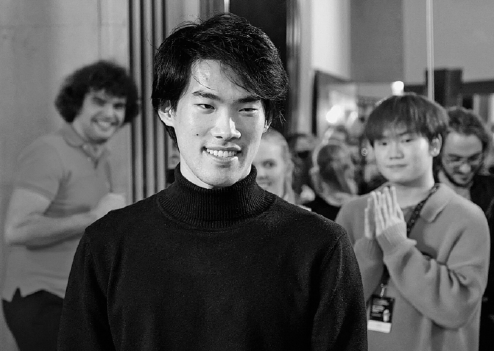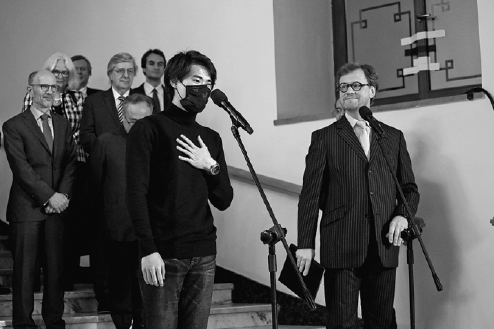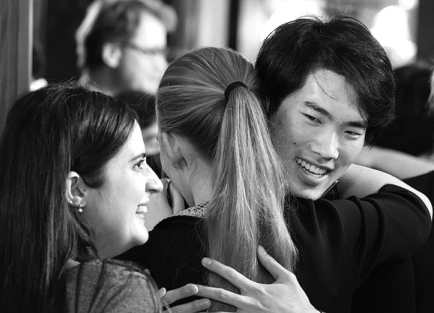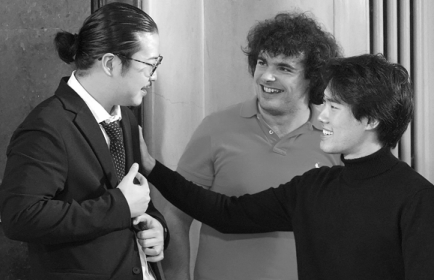The keys to popularity
Online audience tunes into Chopin piano competition in Warsaw, Fang Aiqing reports.

A popular piano competition concluded in the Polish capital after attracting widespread online commentary. The 18th International Fryderyk Chopin Piano Competition that closed in Warsaw on Thursday was livestreamed throughout, indicating young Chinese people's passion for the music.
On the same day, however, Beijing police announced on social media platform Sina Weibo that a 39-year-old man surnamed Li, whom, the public believe to be pianist Li Yundi, has been detained for soliciting a prostitute.
Li won the competition in 2000 and since then it has enjoyed growing popularity in China. It was the first and only time that a Chinese pianist took the crown.
The competition, among the world's most important musical events, is held every five years and is one whose repertoire solely comes from the Polish composer, who, in his 39 years of life through 1810 to 1849, played and wrote music marked with his poetic elegance, patriotism, passion and introversion.
Chinese-Canadian Bruce Xiaoyu Liu, 24, currently studying with former champion, Vietnamese-Canadian Dang Thai Son, one of the competition's 17 jury members, won the competition.
Rao Hao, 17, was the only candidate from China who made it to the third round and the final but failed to win an award. He currently studies at the middle school attached to Xinghai Conservatory of Music in Guangzhou, South China's Guangdong province.
In an interview before the final, according to the competition's official release, Rao confessed that the biggest challenge during the competition was to be persistent and keep playing the same composer's music well, because sometimes fatigue could set in. However, as he proceeded, he was able to dig deeper and the music became more meaningful.
Jin Xinghui, a piano teacher who has been following the event, and commenting on the competition, says in a short video he posted online that Liu's version of Piano Concerto No 1 in E Minor, Op 11 was clear-cut and energetic, bringing out a feeling of distinction that he had been expecting.
"He was unrestrainedly enjoying himself onstage during the final and has an interesting pedal technique," he says, adding that Liu was stable and consistent over the four rounds of competition.
As for Rao, Jin says he hopes that, in future, the young pianist can keep his concentration and expand his repertoire. After all, he no longer has to rush into other big competitions to prove himself.
Although the pandemic saw a postponement of the competition, originally scheduled for 2020, more than 500 young pianists from around the world, born between 1990 and 2004, registered, with 164 entering the preliminary round in July.
Among the 87 entrants of the main competition, 20 were from the Chinese mainland, three from Taiwan, one from Hong Kong, with 10 of them making it to the second round of 23 participants.
Over the past month, there have been many online discussions around playing skills and musical interpretation, as well as expressing the audience's preference for competitors, or topics such as whether the performers should be loyal to Chopin's original phrasing or add more personal styles, and where domestic piano education should aim to go.
Chen Sa, who won fourth place in the 2000 competition, has joined some of the discussions through Weibo in a candid manner, although as a member of the jury, she has to be reserved on some of the topics.
Just one single piece of video showing Taiwan candidate Chang Kai-min playing in the first round has garnered over 150,000 views on video platform Bilibili as of Thursday.
Also worth mentioning is that several Japanese participants have been active on Chinese social media platforms.
Hayato Sumino, under the name of Cateen, has over 100,000 fans on Bilibili, and videos of Tomoharu Ushida, in his childhood, performing onstage, being interviewed and attending a master class hosted by Chinese pianist Lang Lang, are widely watched.
Chinese audiences have also shown their appreciation of Sumino, from the graduate school of information sciences and technology at the University of Tokyo, and Sohgo Sawada, studying medical science at Nagoya University, for what they have accomplished in the music field.




Today's Top News
- China holds central rural work conference
- President Xi to deliver New Year's message to ring in 2026
- Xi's diplomacy in 2025: Shedding light on a world at crossroads
- China to apply lower import tariff rates to unleash market potential
- China proves to be active and reliable mediator
- Three-party talks help to restore peace






























